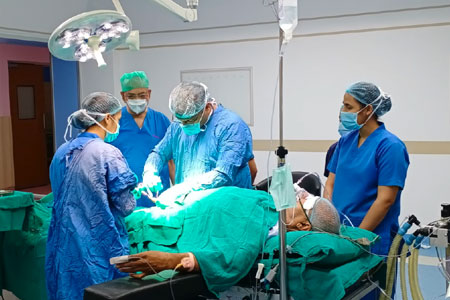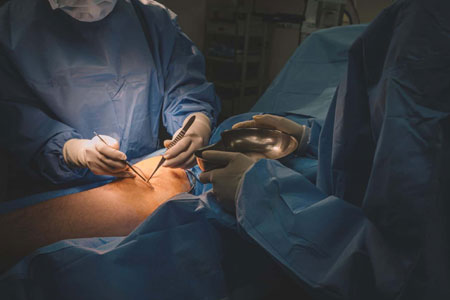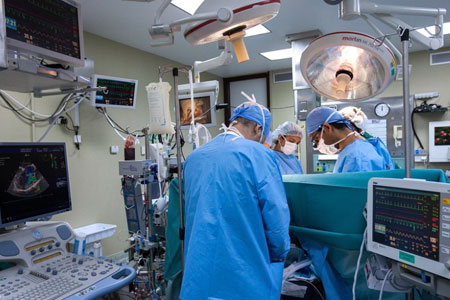
The Department of General Surgery performs a broad range of general and highly specialized surgical procedures to ensure that your child has the best possible chance of recovery – with the minimal incisions and trauma.
General surgery is a surgical specialty that focuses on alimentary canal and abdominal contents including the esophagus, stomach, small intestine, large intestine, liver, pancreas, gallbladder, appendix and bile ducts, and often the thyroid gland.
Vascular surgery is a specialty dealing with diseases affecting the vascular system including diseases of arteries, veins and lymphatic vessels. Many patients referred to a vascular specialist do not require surgical or radiological intervention, but rather reassurance and lifestyle advice (lose weight, take regular exercise) coupled with measures to reduce their future risk of heart disease and stroke (antiplatelet and lipid-lowering therapy, blood pressure control). Additionally smoking is a major cause of vascular disease and over 80 per cent of vascular patients are current or ex-smokers.


Brain surgery is a critical and complicated process. The type of brain surgery done depends highly on the condition being treated. Brain surgery is a procedure that treats tumors, leaky blood vessels, aneurysms or epilepsy. There are different types of brain surgeries that are both invasive and noninvasive so a surgeon can access your brain. You may be awake during brain surgery. Brain surgery takes careful planning and rehabilitation to help you feel better.
The surgery involves an incision on the back of the spine that allows the surgeon to remove bone spurs and thickened ligaments that are pressing on the nerves of the low back. Microdiscectomy is used to treat nerve pain (sciatica) due to a herniated disc impinging a nerve in the spine


Knee replacement surgery replaces parts of injured or worn-out knee joints. The surgery can help ease pain and make the knee work better. During the surgery, damaged bone and cartilage are replaced with parts made of metal and plastic.
To decide whether a knee replacement is right for you, a surgeon checks your knee’s range of motion, stability, and strength. X-rays help show the extent of damage.
GI Gastrointestinal surgery is the treatment for diseases that affect the part of the body which helps in the digestion process. The GI surgery removes tumors or any damaged part from the gastrointestinal tract, such as intestine or pancreas. This GI surgery is also used to solve problems like inflammatory bowel disease, severe acid reflux, hernia and many other chronic diseases.


Surgical oncology is a type of cancer treatment focused on the use of surgery to diagnose, stage and treat cancer.
The goal of surgical oncology is to remove tumours or cancerous cells as much as possible without damaging surrounding organs and tissues so that they function normally. And for such precision-based surgery, the services of a qualified and highly experienced surgeon are required. In other circumstances, less intrusive methods like endoscopy or laparoscopy may also be used. No matter what approach is taken, we ensure the best cancer treatment possible for patients.
Plastic surgery is broad surgical subspecialty that, unlike other surgical specialties, isn’t confined to a single organ system. As a result, it is a technically demanding and naturally creative field that is constantly changing and re-inventing itself. Plastic surgeons treat pathologies that range from congenital anomalies to cancer, trauma and degenerative or autoimmune conditions. Additionally, plastic surgeons are inherent team players since they must constantly work alongside other specialties like general surgery, gynecology, neurosurgery, ophthalmology, oral surgery, orthopedic surgery otolaryngology and urology to reconstruct any anomalies or defects in the body.


Mostly, it’s the removal of lung tissue to repair the damage, perform a biopsy, to impede cancerous growth or the removal of extraneous material such as fluid build-up or blood in the lungs, are collectively referred to as lung surgery. Lung surgery is sometimes performed to stem side effects of other procedures, such as when blood may need to be removed from the organ during a different surgical procedure.
Copyrights © 2023 A to Z Hospital.
Developed & Hosted by YOGA’S IT Solutions.